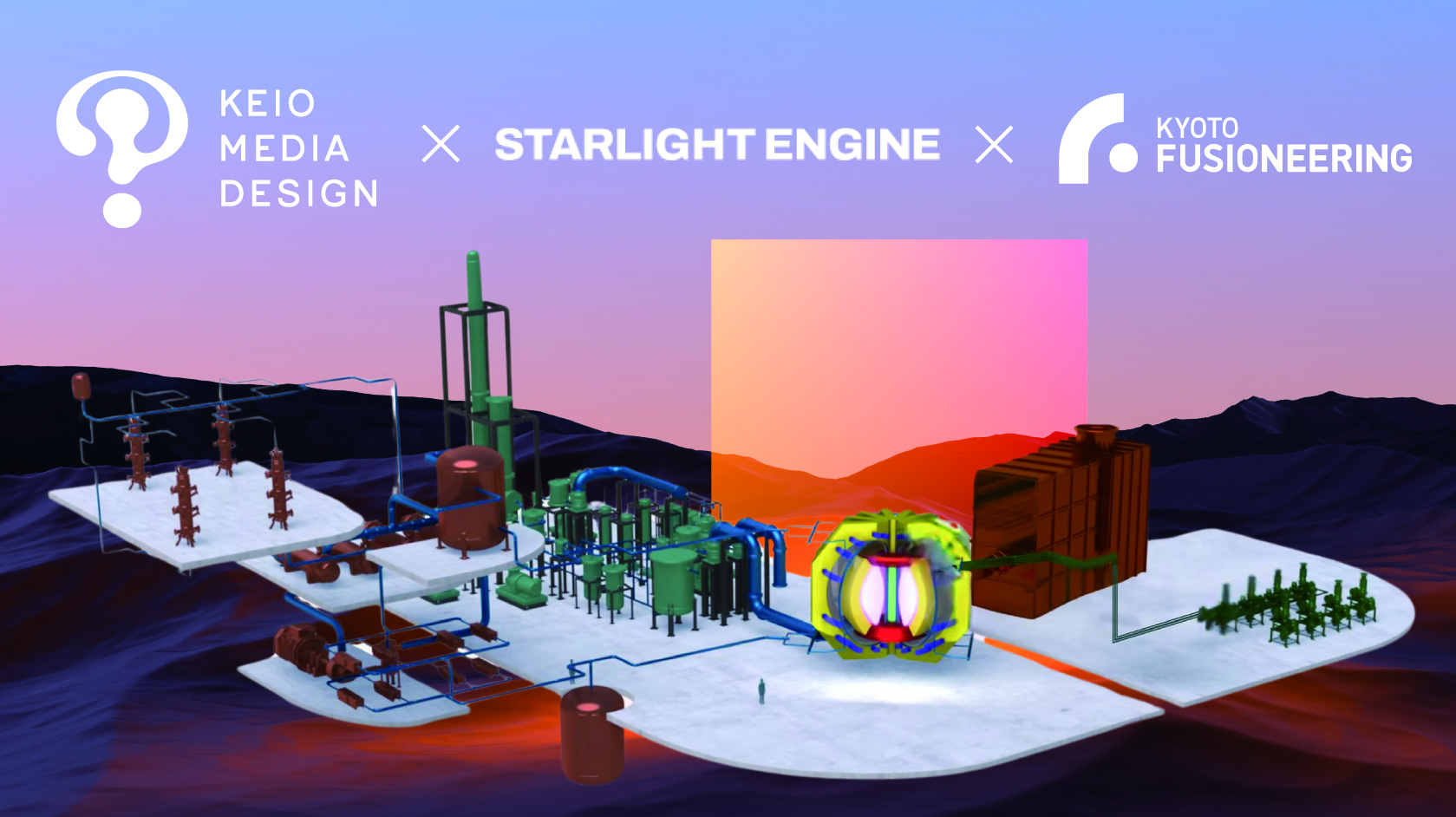Exploring how fusion energy can power communities, economies and a sustainable future
Keio University Graduate School of Media Design (KMD), Starlight Engine Ltd., and Kyoto Fusioneering Ltd. have signed a joint research agreement to explore the social and economic dimensions of fusion energy. This collaboration will examine how fusion can be successfully integrated into society, with a particular focus on supporting the FAST* project—an initiative led by Starlight Engine that aims to demonstrate fusion power generation in the 2030s.

1. Joint Research Agreement Overview
In June 2025, Japan revised its national Fusion Energy Innovation Strategy to strengthen its commitment to making fusion a practical energy solution. As part of this update, the Cabinet Office established a new task force under the Expert Panel on Fusion Strategy—the Task Force for Examining Basic Concepts Toward the Social Implementation of Fusion Energy. These developments signal growing momentum toward making fusion energy a practical part of society’s future energy landscape.
To achieve the strategy’s goal of demonstrating fusion power generation in the 2030s and paving the way for its commercialisation, it is essential to move beyond technology development alone. Broader challenges, including plant siting, construction, safety and public understanding, also need to be addressed. In particular, gaining public trust and support will require transparent and open communication on the business, technical, and safety aspects of fusion energy and its potential economic impact on local communities. At present, most economic analyses of fusion energy are focused on long-term market forecasts. There is an increasing need for research that examines the more immediate, tangible effects that fusion energy projects could have on people, communities and industry.
To meet this need, Dr. Shutaro Takeda—Co-founder of Kyoto Fusioneering and Associate Professor at the Keio University Graduate School of Media Design—will lead a collaborative research initiative focused on the socioeconomic dimensions of fusion energy. The study will estimate the economic ripple effects of building and operating fusion energy plants, including those envisioned under the FAST project. It will also include public surveys to evaluate awareness, attitudes and acceptance of fusion energy. By clarifying the societal value of fusion and deepening public engagement, the project ultimately aims to support the successful industrialisation and societal implementation of fusion energy.
2. Joint Research Agreement Details
This joint research will examine the socioeconomic impact of building and operating fusion energy plants, with particular attention to how these projects affect local communities and industries. It will also explore public acceptance of fusion energy as an emerging power source.
To quantify the broader economic impact, the study will expand on multilateral input-output analysis using global trade statistics, enabling a robust, data-driven assessment how fusion plant development could influence economic activity across sectors and regions.
In parallel, surveys will be conducted to gauge public awareness of fusion energy, support or opposition to fusion energy adoption, and willingness to pay for its use. The insights will help identify key challenges and inform strategies for building social acceptance and enabling the successful integration of fusion energy into society.
3. Comments from Dr. Shutaro Takeda
Co-founder, Kyoto Fusioneering / Associate Professor, Keio University Graduate School of Media Design
“To bring fusion energy into practical use, we must go beyond solving scientific and technological challenges. Public acceptance, ethical, legal, and social considerations (ELSI), economic evaluation, and strong collaboration with industry and local communities are all essential. Academic research has a vital role to play, and it must be disciplinary, bringing together diverse perspectives to ensure fusion energy is integrated into society in a responsible and sustainable way. Through this joint research initiative, we hope to build a platform for academic dialogue that engages a broad range of stakeholders who are shaping the future of fusion energy.”
*Note: FAST (Fusion by Advanced Superconducting Tokamak) is a Japan-led demonstration project targeting fusion power generation in the 2030s. Led by Starlight Engine, the project brings together private-sector partners, including Kyoto Fusioneering and leading university researchers, to advance fusion through close industry-academia collaboration.
Website: https://www.fast-pj.com/en
Contact Information
Invisible Future Lab [Takeda Lab]
Keio University Graduate School of Media Design
Tel: +81-45-564-2491
Email: shu.takedasec@kmd.keio.ac.jp
Starlight Engine Ltd.
Public Relations
Email: media@sle.energy
Kyoto Fusioneering Ltd.
Public Relations
Tel: +81-3-4530-3706
Email: media@kyotofusioneering.com
